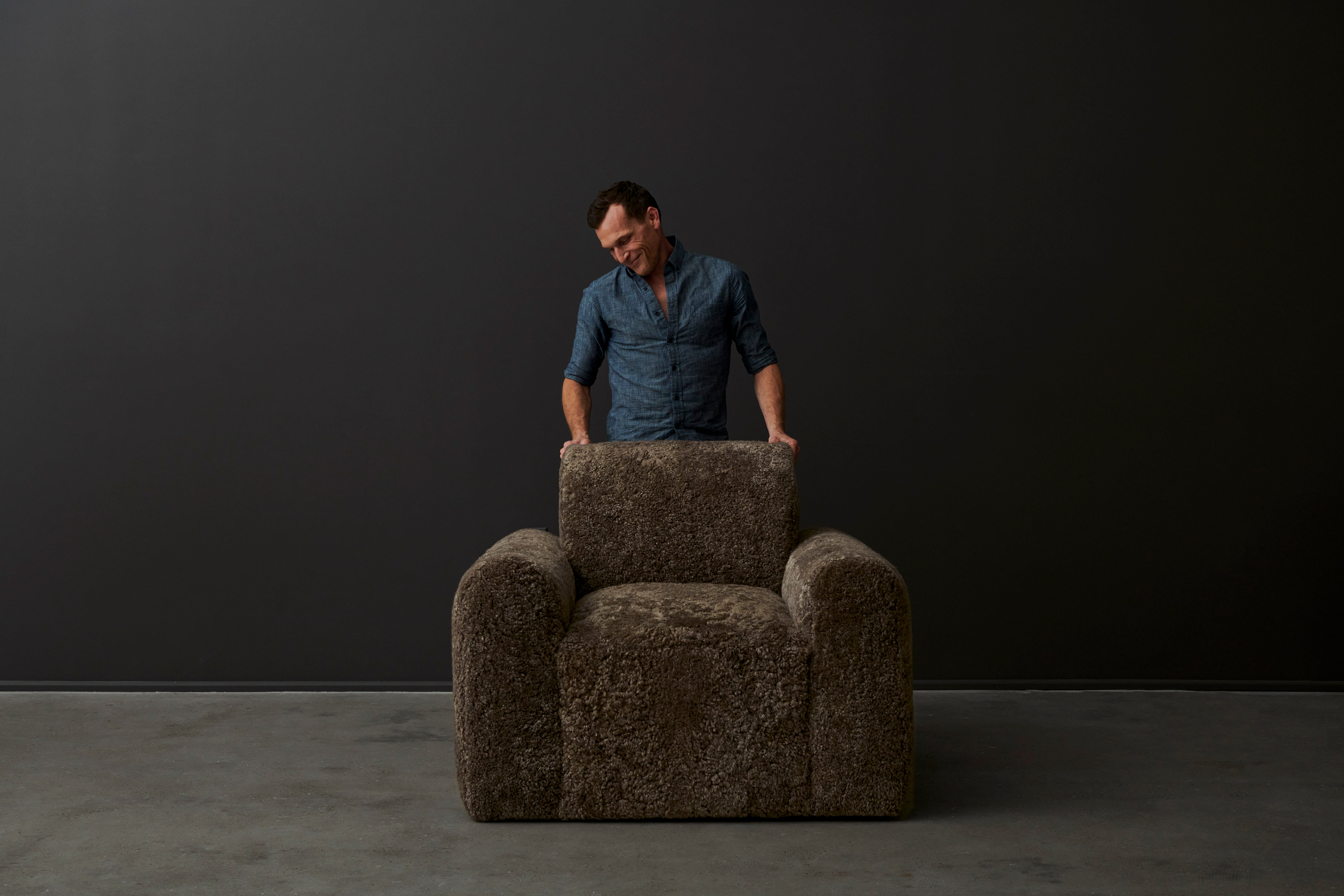There was something charming about one of the industry’s most in-demand custom upholsterers working out of a shop in Irondale, Alabama, a small suburb of Birmingham (itself not exactly the furniture capital of the world). There, Grant Trick was very much a big fish in a small pond, cranking out orders for superstar designers with a misfit crew of craftspeople. Last year, the pond started to feel a little too small.
“At one point, I had one upholsterer in rehab and another who went back to their home country in the Middle East,” he says. “That was two of my three master upholsterers, and there’s no local competition or schools to hire from. The only person who could do this work in the state of Alabama would have been me. How do you scale that business? You don’t.”
Labor was a problem, in other words. So were logistics and raw materials. Without nearby suppliers, Trick found himself regularly driving around the Southeast, loading up U-Hauls with thousands of dollars of foam from whoever would sell it to him. All of it led Trick to face facts: He needed to move to a more furniture-friendly location. “I don’t need to be the best upholsterer in Alabama, and it became frivolous to be there,” he says. “I’m too growth-oriented to stay put.”
A harried search for new digs led Trick to Hickory, North Carolina, where he recently completed the move into a 34,000-square-foot factory that’s, as he put it, “in a funky building right behind the big guys.” Hickory Chair is his neighbor, and Sherrill Furniture operates nearby.
Though the move is still new, the change has already been transformative. “The level of talent here is incredible,” he says. “Every day, I’m surrounded by the best people at what they do. We’re going to have a frame shop in-house now. I’m buying foam every week, and the equipment we need to buy is all right there.”
The move comes at a critical moment for Trick. After building his reputation on custom work, he’s been moving in recent years to streamline that side of his business and develop his own line—and other more scalable ventures. Recently, Trick parted ways with his sole showroom, Profiles in the New York Design Center. However, he’s in the process of developing a line for a fabric brand, and being in Hickory was the only way to make it happen, he says.
That Alabama’s most bookable custom upholsterer would need to move across state lines to grow speaks to the power of industry concentration (the academic term is “cluster theory”) in furniture. You can build a cool boutique business pretty much anywhere, but if you want easy access to the best people, the best supplies, there’s a magnetlike draw toward places where all those things are already concentrated—places like Hickory.
However, with the move to a furniture industry town comes furniture industry realities. All that noise you’ve heard about labor costs going up in North Carolina? That’s accurate, says Trick, and it’s not changing any time soon. “You have upholsterers making $70,000 to $80,000 a year, and product development upholsterers making six figures. My labor costs have gone up, and I have to sell a lot more sofas to pay for it all. But it’s worth it—you’re getting so much value for the money,” he says.
“I have a guy [in the shop], a real South Carolina character, and we’re having conversations about the ‘nuances of an English arm,’” adds Trick. “I don’t take that for granted.”
Homepage image: Grant Trick | Courtesy of C.W. Newell Photography





























